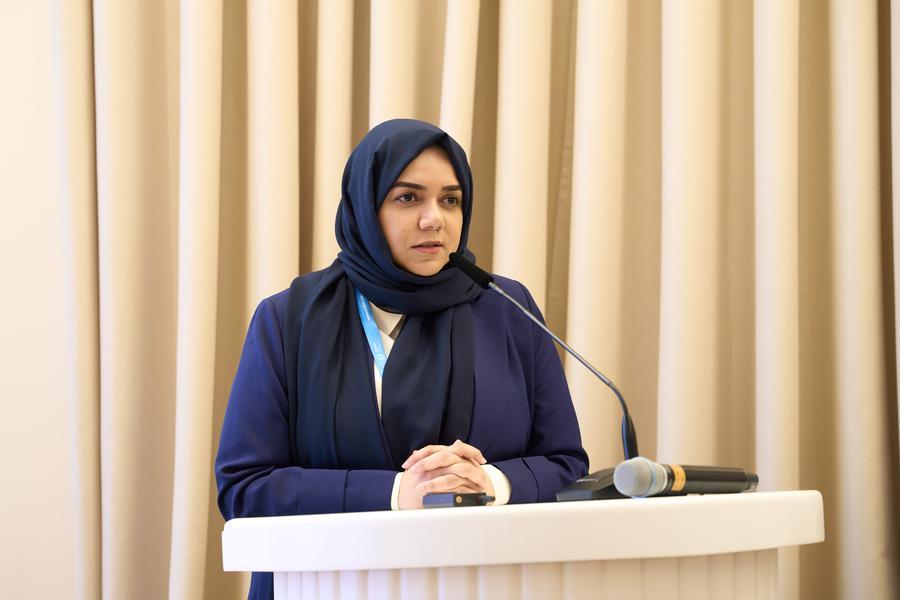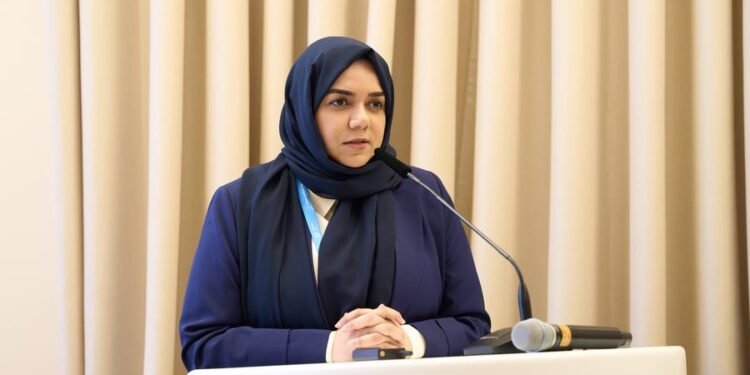
- UAE’s active engagement with emerging markets and developing economies, highlighted during Sustainable Trade Africa 2024 event.
- Importance of the Global Methane Pledge in catalyzing methane action across the energy, food, agriculture, and waste sectors, underscored by UAE during COP29 Global Methane Pledge Ministerial.
Dubai – The UAE Ministry of Climate Change and Environment (MOCCAE) engaged actively in a series of crucial discussions and events at the 29th Conference of the Parties (COP29) to the United Nations Framework Convention on Climate Change in Baku, Azerbaijan, today, reinforcing the nation’s commitment to global climate action and sustainable development.
His Excellency Mohammed Saeed Al Nuaimi, Undersecretary of MOCCAE, delivered a keynote address at the Sustainable Trade Africa 2024 event.
His Excellency emphasized the urgency of integrating climate-resilient strategies across all sectors, highlighting the UAE’s proactive approach to embedding sustainability into its national agenda.
He underscored the UAE’s commitment to fostering a pro-climate, pro-growth environment, referencing initiatives such as the UAE Climate-Responsible Companies Pledge and strategic partnerships with nations like Ghana to advance nature-based climate solutions.
His Excellency Mohammed Saeed Al Nuaimi said: “Our recent US$30 million partnership with the Republic of Ghana, is designed to bolster nature-based community development and climate solutions.” He continued: “From fostering public-private partnerships and cross-border collaborations to building robust trade systems grounded in best practices and forward-looking policies, the opportunities are vast”.
Undersecretary Al Nuaimi also participated in the COP29 Global Methane Pledge Ministerial, contributing to the critical dialogue on mitigating methane emissions, a potent greenhouse gas.
The GMP Ministerial at COP29 brought together ministers and other high-level representatives from key organizations to showcase high-profile announcements and progress to reduce methane emissions.
During the event His Excellency Al Nuaimi focused on the importance of the Global Methane Pledge is catalyzing methane action across the energy, food, agriculture, and waste sectors.
During his participation, His Excellency Mohammed Saeed Al Nuaimi visited some pavilions of the countries participating in the COP29 conference, accompanied by a team from the Ministry of Climate Change and Environment. There, he met representatives of the ministries of the countries participating in the conference and was briefed on the latest experiences and major projects in the field of confronting climate change and sustainability.
Dr. Alanoud Alhaj, Acting Assistant Undersecretary for the Green Development and Climate Change sector at MOCCAE, delivered the opening address at the Next Steps for Effective Carbon Pricing fireside chat, setting the stage for a productive discussion on leveraging carbon pricing mechanisms to drive decarbonization efforts.
Dr. Alanoud emphasized the importance of exploring “the feasibility of carbon pricing policies and the potential the different schemes can have in transforming industries towards the adoption of technological solutions and innovations”.
Dr. Alanoud also delivered a powerful message on behalf of Her Excellency Dr. Amna bint Abdullah Al Dahak, Minister of Climate Change and Environment, at the Second High-Level Ministerial Dialogue on Culture-Based Climate Action, concluding that “the climate emergency is a cultural emergency.”
The speech emphasized the interconnectedness of climate and culture, highlighting the devastating impact of climate change on cultural heritage and the potential of culture to drive climate action.
Dr. Alanoud highlighted the importance of the Group of Friends for Culture-Based Climate Action (GFCBCA), co-chaired by the UAE and Brazil, going on to say: “…culture does not have to be a victim of climate change. Culture can be part of the solution.”
Illustrating her point, Dr. Alanoud said, “Community responses to devastating climate impacts have shown time and again the power of culture, and the importance of education in empowering young voices and promoting sustainable behaviours.”
These engagements reflect the UAE’s multifaceted approach to addressing the climate crisis, encompassing sustainable trade, methane reduction, carbon pricing, and the integration of cultural considerations into climate solutions. The UAE remains committed to working collaboratively with international partners to achieve ambitious climate goals and build a more sustainable future for all.









